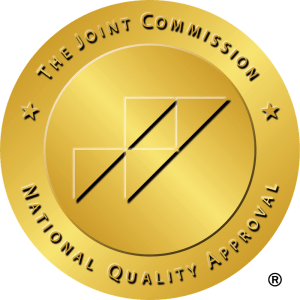A kinder, more effective path than boot camps
The Phoenix Boot Camp for Teens Alternative
We Accept Insurance
Therapeutic healing, not harsh discipline
A family-focused approach, not isolation
We promote lasting change, not quick fixes
At Avery’s House, your child is in expert hands: 93% of teens rate our therapists as knowledgeable and skilled.
Rethinking the teen boot camp approach
Feeling hopeless about your troubled teen? You’re likely exploring every option, even teen boot camps in Phoenix. But are boot camps an effective path to lasting healing?
Before you decide, learn how the more compassionate and effective approach of Avery’s House helps teens with severe behavioral health problems.
Call for a free, personalized consultation today!
How effective are teen boot camp programs?
Research is concerning. A 2010 review found that teen boot camps are often ineffective at reducing long-term behavioral problems and can even worsen a teen’s underlying mental health issues. Their rigid, military-style discipline focuses on surface behavior control, not the deeper emotional and psychological issues driving a teen’s struggles.
88% of teens report feeling that their treatment needs are truly understood at Avery’s House.
Why don’t traditional boot camps solve a troubled teen’s problems?
Traditional juvenile boot camps aim to reduce rebellious behavior and build respect for authority through discipline, unquestioning obedience, aggressive confrontations, and rigid routines.
While this approach may work for some teens, it is often ineffective for those with severe mental health challenges.
A main criticism of teen boot camps is that they ignore root causes of problematic behavior, making them ineffective at treating teens with complex mental health struggles, such as depression, anxiety, bipolar disorder, and oppositional-defiant disorder.
Need help for a teen near Phoenix? Call today!
What are the limitations of a boot camp for teens?
Boot camps may seem like a quick fix for behavioral issues, but they have significant drawbacks. Their “tough love” methods cannot address mental health struggles, past trauma, or emotional challenges. Here are some other key limitations to consider:
- Neglect of psychological history
- Failure to identify root causes
- A one-size-fits-all approach
- Minimal family involvement
- Focus on obedience over well-being
- Lack of academic support
Help your teen find joy again
Seeing your child unhappy is painful. You want your teen to function better, rediscover happiness, and thrive. We can help. Our therapeutic setting at Avery’s House fosters healthy behaviors, emotional growth, and long-term well-being.
Better than boot camp: Personalized and compassionate care at Avery’s House
Avery’s House provides specialized and individualized residential mental health treatment near Phoenix for teens, offering…
- A safe and nonjudgmental environment where teens feel comfortable opening up
- Highly trained, compassionate staff, including licensed therapists and teen specialists
- Treatment that identifies and addresses root causes
- Better family dynamics through intensive family involvement
- Life skills training that boosts emotional regulation, communication, self-awareness, and academic performance
- Expert medication management
- Meticulous aftercare planning and transitional support
Residential treatment may be ideal if your child…
- Is transitioning from an inpatient or hospital psych stabilization program.
- Has tried outpatient programs (PHP or IOP) but needs more structure and support.
- Needs a break from home, school, and/or social life to focus on recovery.
Is Avery’s House boot camp alternative the right fit for your teen?
Struggling to help your Phoenix teen? You want more than a quick fix; you want lasting success and a stronger connection. We understand. Our free consultation helps you understand your teen’s needs, explore options, and create a clear path forward.
In this no-pressure call, we’ll
- Listen to your story
- Discuss all available options
- Provide actionable next steps
Your child’s well-being is our top priority. Whether or not you choose our program, you’ll leave our consultation with a clearer understanding of your teen’s needs and steps you can take to support them.
Speak with a teen counselorTherapeutic services included
To help teens maintain school progress and strengthen family bonds while recovering, our team of licensed therapists offers academic support and the following evidence-based therapies and services:
- Individual and family: individual counseling, family therapy, case management
- Therapeutic approaches: cognitive behavioral therapy (CBT), dialectical behavior therapy (DBT), trauma-informed care
- Experiential and creative: art therapy, music therapy, community-based activities
- Specialized support: LGBTQ+ allyship
Want to learn more about the services we offer?
We accept insurance
We work with most major Arizona insurance providers to minimize out-of-pocket costs. We’ll help you determine whether your provider covers your teen’s treatment.












